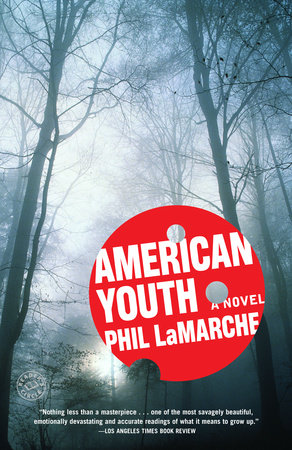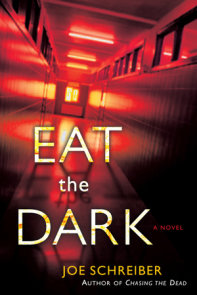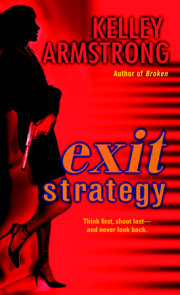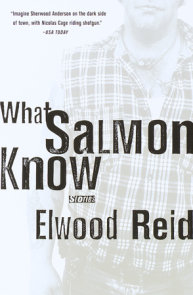READERS GUIDE
Questions and Topics for Discussion
1. American Youth is a coming-of-age story. LaMarche emphasizes his protagonist’s youth, referring to him as “the boy.” The boy is small in stature–he weighs “less than most of the girls he wanted to date” (p. 67). In what other ways is his immaturity shown? Does Teddy progress, or come of age? If so, how is his new maturity shown?
2. Phil LaMarche sets his novel in a small, developing New England town. How does the changing setting serve the story? the themes? How does it shape the characters? How does the mother resist change? How do the American Youth resist change? How do the men in Teddy’s family view change? How does Teddy avoid and accept change?
3. LaMarche skillfully uses guns to address American political divisions. At the same time, he implies that neither side of the gun debate is right or wrong. Without denying the destructive power of guns–the central conflict of the novel springs out of an accident with a gun–the story involves people’s identity with and nostalgia for guns, characters who treat their guns with love and care. Do you think LaMarche is trying to take a side, or avoid taking a side, in the gun debate? Would you peg him as liberal or conservative? Does this affect the way you interpret the story?
4. The story includes many examples of families for whom living with guns in their homes is part of their everyday lives. The accident takes place in a family’s dining room. The boy fondly remembers hunting trips he took with his father. Why is it important to address the role of guns in the private as well as in the public domain?
5. Adolescence involves learning responsibility. How does Teddy learn to avoid or accept responsibility? The people in Teddy’s life play roles that either encourage or distract him to this end. How do his mother, his father, his uncle, his grandfather, Terry, and the Youth do so? How do truths and lies play into taking responsibility?
6. Is the boy’s mother a good mother? How does she help or hinder the boy? Do you think her actions are self-serving or truly in the interest of her son? Why does she disallow Teddy from seeking counseling after the incident? What of her sense of morality?
7. Is the boy’s father a good father? Can he be said to be a good father despite his absence? What is his role in the boy’s life? Do they have a healthy relationship?
8. Teddy “started to see that everything that was good in the world was a result of honest American values. Anything bad was a result of a departure from those core principles” (p. 87). Which values is LaMarche talking about, and how are they American? Can LaMarche’s small town represent the whole of America? Is his America a stereotype, or does it hold a quintessence? Is America defined by its people or by its places?
9. The Youth hold vandalism to be a highly effective “form of protest.” Do you agree? What are they protesting? Are they effective in their protest? Do you think the American Youth is a fascist group? Why?
10. Why does Teddy want to be part of the American Youth at first? Why, then, does he later betray them–worse, attack them–when they want him in the group?
11. Why is George a good gang leader? Why does he want Teddy in the group so badly? Why does Teddy hit George and not Jason Becket with the rock at the end of the book?
12. Teddy’s sort-of girlfriend, Colleen, struggles with loyalty and sexuality, as does Teddy. Do their perspectives differ significantly? Is theirs a “Mars” and “Venus” relationship? Do we get to know Colleen well enough to understand the choices she makes?
13. The majority of the novel is written in the past tense. Why do you think LaMarche changes to the present tense for the last few pages of the book? What is the author trying to get across?
14. Teddy is stuck. He is self-destructive, self-medicating, self-loathing, and lonely. By turns he feels guilty, angry, and detached–sometimes all at once. LaMarche paints a grim picture of adolescence, singed with burning pain. Do you think Teddy is an extreme case, or is this a typical portrait of the American adolescent? Are Teddy’s problems the result of his own actions, or of his environment?
15. Teddy’s uncle commits suicide by shooting himself in the mouth. LaMarche writes of the uncle (p. 152), “He had said, ‘You got yourself a lame horse, you know what you do: You take it out back, you take care of it.’ ” This is then reduced to: “In the action [of commiting suicide], Lawrence had proclaimed: I cannot live my life as I would like; therefore I assume the responsibility of ending it.” And finally to: “This sucks–fuck it.” How does this change the way Teddy thinks about death? How does it change the way he thinks about suicide? Later he puts a shotgun muzzle in his own mouth, but he stops short of pulling the trigger. Why doesn’t he go through with it himself?
16. Could this book be intended for youth, or is it better suited to adult readers? How do you think someone Teddy’s age would react to the novel?




















